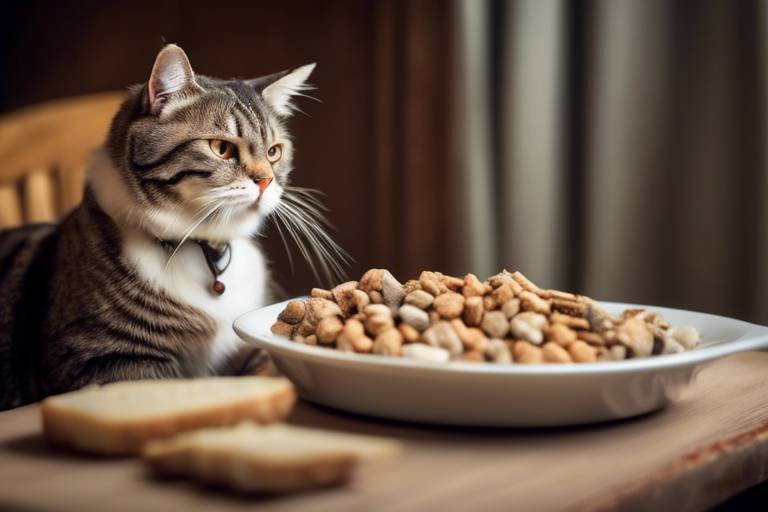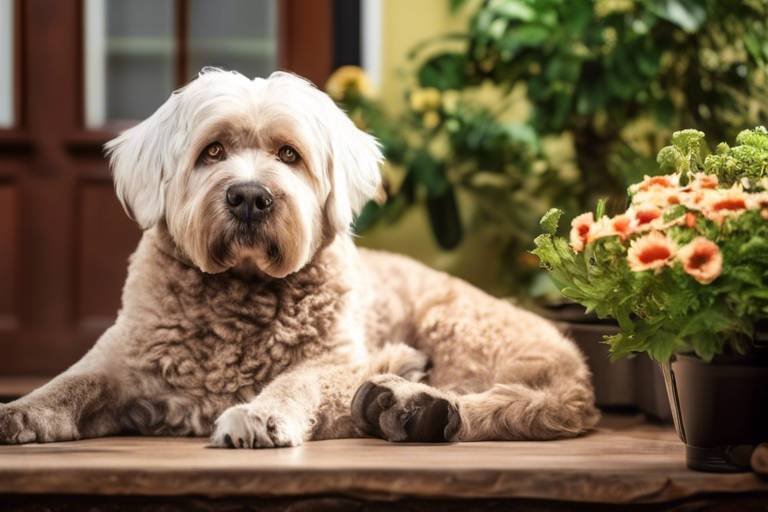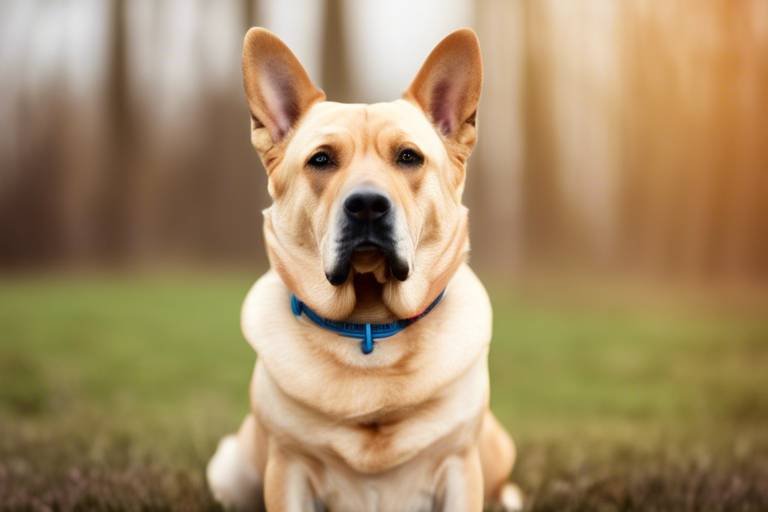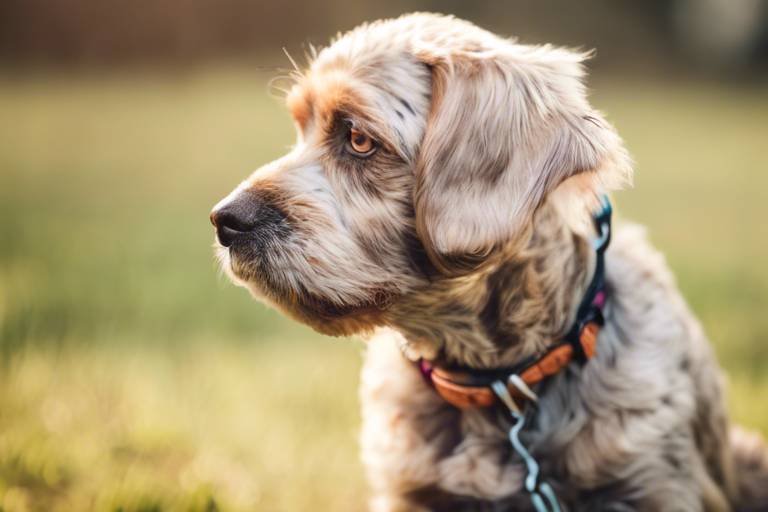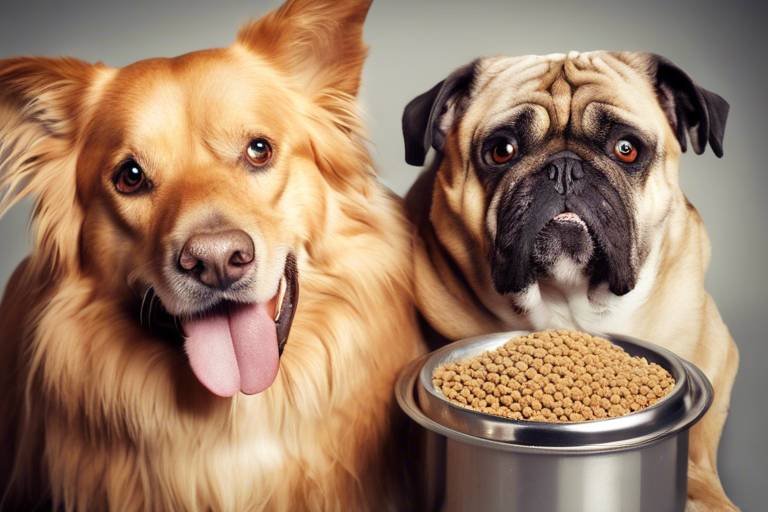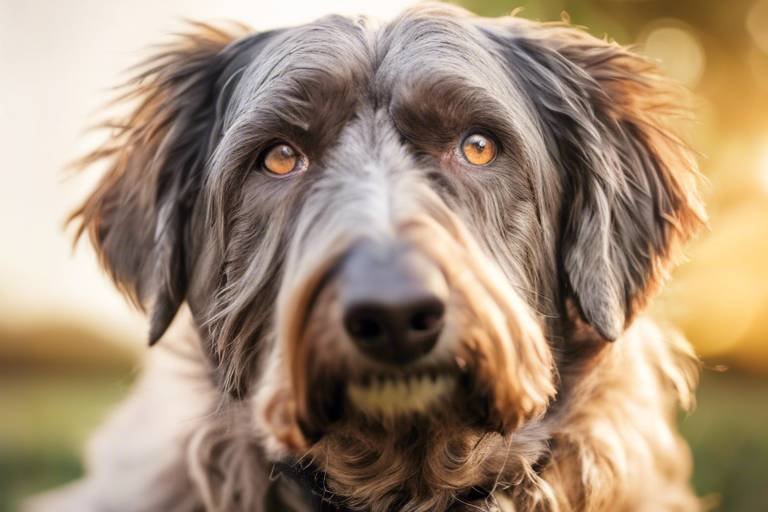The Role of Diet in Senior Cat Health
As our feline friends grow older, their nutritional needs evolve, much like the way we adapt our diets as we age. A balanced diet is crucial for maintaining the health and happiness of senior cats, as it directly influences their overall well-being, energy levels, and longevity. Just like a well-tuned engine requires the right fuel to run smoothly, senior cats need a carefully curated diet that meets their changing needs. But what does that entail? Let’s dive deeper into the vital role that diet plays in the health of our beloved senior cats.
When we talk about nutrition for senior cats, we’re not just referring to the food they eat; we’re discussing a comprehensive approach that includes understanding their specific dietary requirements, recognizing the common health issues they face, and making informed choices about their food. It’s important to remember that not all cat foods are created equal. The right diet can be the difference between a cat that thrives in its golden years and one that struggles with health problems.
In this article, we will explore the essential nutrients that senior cats need, the common health issues they encounter, and how diet plays a pivotal role in both prevention and management. We’ll also look at practical feeding guidelines, the pros and cons of different types of cat food, and even touch on homemade diets. So, whether you have a spry senior cat or one that’s starting to slow down, you’ll find valuable insights to help you keep them healthy and happy.
As we navigate through the intricacies of senior cat nutrition, it’s essential to remember that every cat is unique. Factors such as age, weight, activity level, and pre-existing health conditions all play a part in determining the best dietary approach. But fear not! By the end of this article, you’ll have a clearer understanding of how to tailor your senior cat’s diet to meet their specific needs, ensuring they enjoy their twilight years to the fullest.
- What should I look for in senior cat food? Look for high-quality protein sources, essential fatty acids, and a balanced mix of vitamins and minerals.
- How often should I feed my senior cat? It's generally recommended to feed senior cats smaller, more frequent meals to support their metabolism.
- Can I give my senior cat homemade food? Yes, but be sure to consult with a veterinarian to ensure it meets all nutritional requirements.
- Are there specific diets for cats with health issues? Absolutely! Cats with conditions like kidney disease may require specialized diets to support their health.
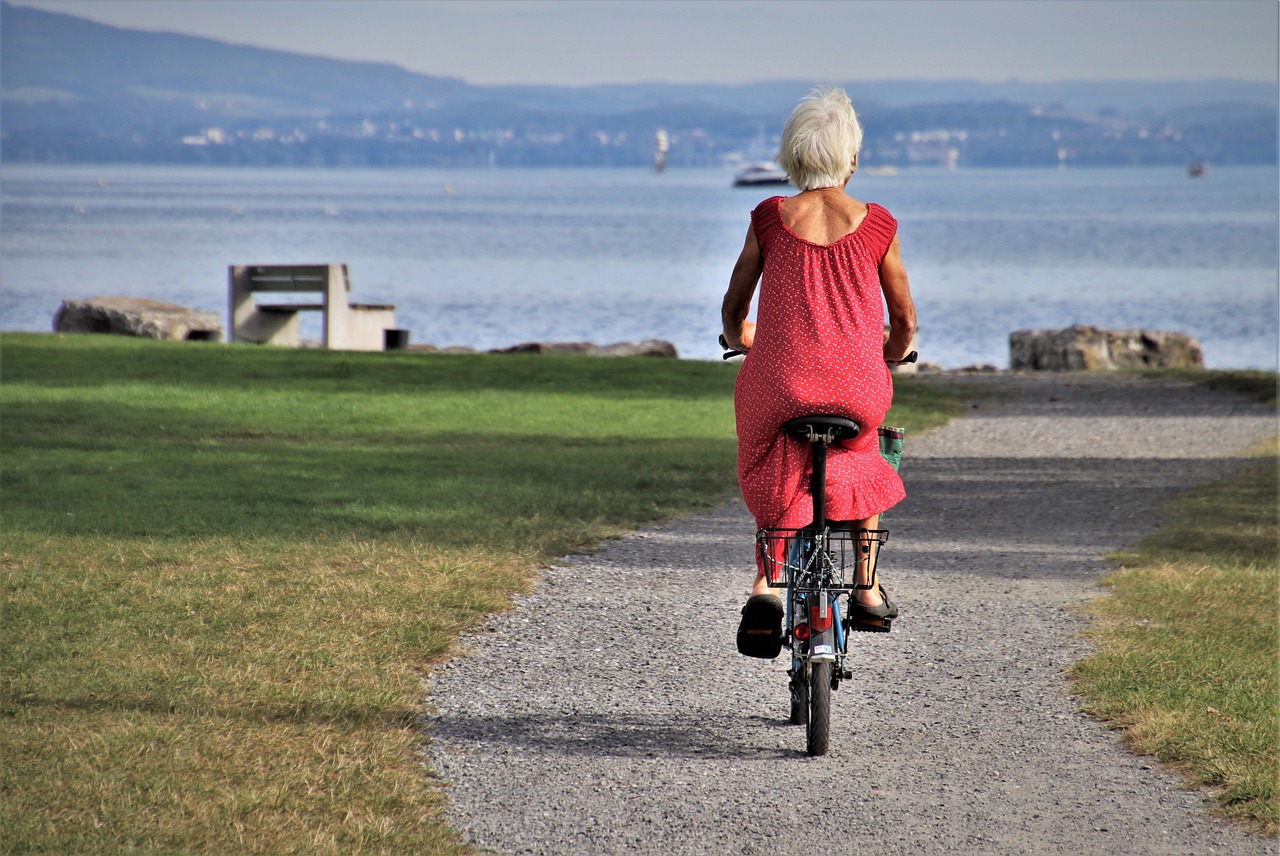
Understanding Senior Cat Nutritional Needs
As our feline friends age, their bodies undergo significant changes, which means their nutritional needs also evolve. Just like us, senior cats require a special diet that caters to their changing metabolism, energy levels, and health concerns. It's crucial to understand that a well-balanced diet is not just about keeping them full; it's about providing the right nutrients that promote longevity and vitality. So, what exactly should you be looking for in your senior cat's food?
First and foremost, senior cats often need higher protein levels to maintain muscle mass. As they age, their muscle mass naturally decreases, and a protein-rich diet can help mitigate this loss. But not just any protein will do; it should come from high-quality sources that are easily digestible. Look for options that list real meat as the first ingredient, such as chicken, turkey, or fish.
In addition to protein, senior cats benefit from lower fat content in their diets. Excess fat can lead to obesity, a common issue in older felines. This is where understanding your cat's specific needs becomes essential. If your cat is less active, you may need to adjust their caloric intake accordingly. A diet that is lower in fat but still rich in essential fatty acids, like omega-3 and omega-6, can help maintain skin and coat health while supporting overall well-being.
Another critical nutrient for senior cats is fiber. Fiber aids in digestion and can help prevent constipation, a common problem in older cats. Foods that include ingredients like pumpkin or psyllium husk are excellent choices for increasing dietary fiber. Not only does fiber support digestive health, but it also helps keep your cat feeling full, which can be beneficial for weight management.
Furthermore, hydration is often overlooked when discussing senior cat nutrition. Many older cats tend to drink less water, which can lead to dehydration and kidney issues. Incorporating wet food into their diet can help increase their water intake. Wet food is not only palatable but also provides essential moisture that supports urinary tract health and kidney function.
To summarize, the key components of a senior cat's diet should include:
- High-quality protein to support muscle mass
- Lower fat content to prevent obesity
- Increased fiber for digestive health
- Hydration through wet food options
Understanding these nutritional needs is the first step in ensuring your senior cat enjoys a healthy and happy life. It’s always a good idea to consult with your veterinarian to tailor a diet that suits your cat’s specific health conditions and lifestyle. After all, a well-fed cat is a happy cat!
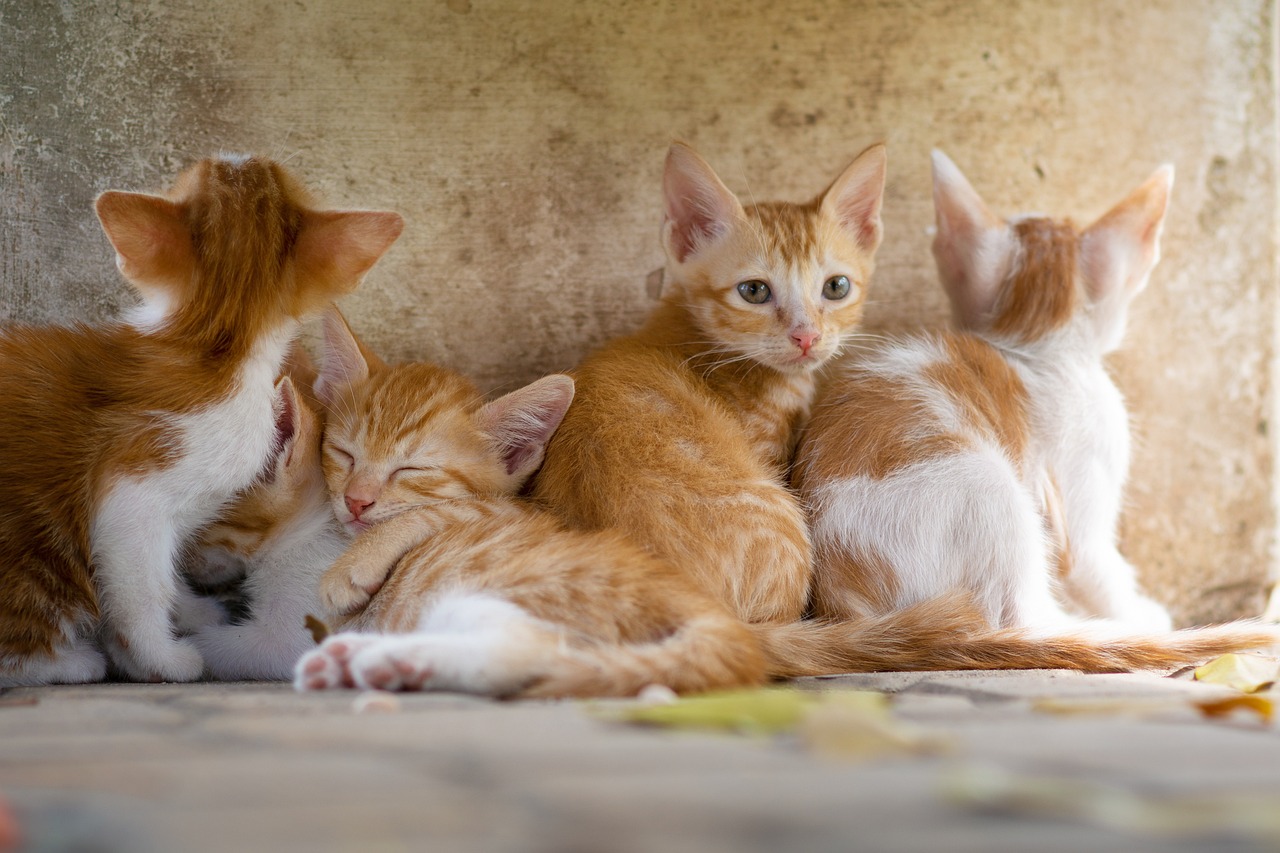
Common Health Issues in Senior Cats
As our beloved feline companions age, they become more susceptible to a range of health issues that can significantly impact their quality of life. It's essential for cat owners to be aware of these common conditions to ensure their senior cats receive the proper care and attention they need. Among the most prevalent health problems in senior cats are obesity, kidney disease, and dental issues. Each of these conditions can be influenced by dietary choices, making nutrition a critical component of senior cat care.
First up is obesity. This isn't just a cosmetic concern; it can lead to severe health complications. Senior cats often become less active, which can contribute to weight gain. It’s like watching a once spry athlete slow down; without a proper diet and exercise, their health can quickly decline. Obesity can lead to diabetes, joint problems, and even heart disease. Therefore, managing a senior cat’s weight through a balanced diet is vital to keeping them healthy and happy.
Next, we have kidney disease, a condition that affects many older cats. The kidneys are essential for filtering waste from the blood, and as cats age, their kidney function may decline. A diet low in phosphorus and protein can help support kidney health, but it’s important to consult with a veterinarian before making any significant changes to your cat’s diet. Imagine the kidneys as a filter in a fish tank; if it gets clogged, the whole system suffers. Keeping that filter clean through proper nutrition is crucial for your cat’s well-being.
Lastly, dental issues are another common concern for senior cats. Many cats develop periodontal disease as they age, which can lead to pain and tooth loss. A poor diet can exacerbate these problems, as soft foods may not help in maintaining oral health. Regular dental check-ups and a diet that promotes dental hygiene are essential. Think of it as giving your cat a toothbrush through their food; the right diet can help keep their teeth and gums healthy.
In summary, understanding the common health issues that senior cats face is crucial for their care. By being aware of conditions like obesity, kidney disease, and dental issues, cat owners can make informed dietary choices that promote longevity and quality of life. Regular vet check-ups, along with a balanced diet tailored to their specific needs, can make a world of difference in the health of your aging feline friend.
- What are the signs of obesity in senior cats? Look for signs like difficulty grooming, lethargy, and trouble jumping or climbing.
- How can I tell if my cat has kidney disease? Symptoms may include increased thirst, frequent urination, weight loss, and vomiting.
- What type of food is best for senior cats? Look for high-quality, age-appropriate food that meets their specific nutritional needs.
- How often should I feed my senior cat? It's generally recommended to feed smaller, more frequent meals to help manage their weight and digestion.
Obesity in Senior Cats
Obesity is more than just a cosmetic concern for our beloved senior cats; it can be a serious health issue that dramatically affects their quality of life. As our feline friends age, their metabolism slows down, and they may become less active, leading to weight gain. In fact, studies show that over 50% of senior cats are classified as overweight or obese. This excess weight can lead to a myriad of health problems, including diabetes, arthritis, and heart disease. So, how do we tackle this growing issue?
First, it's essential to understand the causes of obesity in senior cats. Several factors contribute to this condition, including:
- Decreased Activity: Older cats often have lower energy levels and may be less inclined to play or explore.
- Dietary Changes: Many pet owners may not realize that senior cats require different nutrients and fewer calories than their younger counterparts.
- Health Conditions: Certain medical issues, such as hypothyroidism or arthritis, can lead to weight gain.
Recognizing the risks associated with obesity is crucial. Overweight senior cats are at a higher risk for developing serious health conditions. For instance, obesity can exacerbate joint pain, making it difficult for cats to move around comfortably. Additionally, excess weight puts strain on the heart and can lead to cardiovascular problems. It's a vicious cycle: as they gain weight, their activity decreases, leading to further weight gain.
So, what can we do to help our senior cats maintain a healthy weight? The answer lies in dietary strategies. First and foremost, it's vital to consult with your veterinarian to create a tailored weight management plan. This plan should include specific feeding guidelines and caloric intake based on your cat's age, weight, and health status. Here are a few strategies to consider:
| Strategy | Description |
|---|---|
| Portion Control | Measure your cat's food to avoid overfeeding and ensure they receive the right amount of nutrients. |
| Frequent Small Meals | Instead of one or two large meals, consider feeding your cat smaller portions throughout the day to keep their metabolism active. |
| Low-Calorie Treats | Choose healthy, low-calorie treats to reward your cat without adding excess weight. |
Implementing these strategies can significantly help in managing your senior cat's weight. However, it’s equally important to monitor their progress regularly. Keep an eye on their body condition and adjust their diet as needed. Remember, every cat is unique, and what works for one may not work for another.
Lastly, don't forget the importance of exercise. Engaging your senior cat in gentle play can help burn calories and keep them active. Simple activities like feather wands or laser pointers can spark their interest and encourage movement. Even short play sessions can make a difference!
In conclusion, obesity in senior cats is a pressing issue that requires attention and action. By understanding the causes, recognizing the risks, and implementing effective dietary and exercise strategies, we can help our furry companions live longer, healthier lives. After all, a happy cat is a healthy cat!
Q: How can I tell if my senior cat is overweight?
A: You can determine if your cat is overweight by feeling their ribs. You should be able to feel them without too much pressure. If you can't feel their ribs, or if they have a noticeable belly, they may be overweight.
Q: Can I switch my senior cat to a low-calorie diet?
A: Yes, but it's essential to consult with your veterinarian first. They can recommend suitable low-calorie food options that meet your cat's nutritional needs.
Q: How much should I feed my senior cat?
A: The amount varies based on your cat's weight, activity level, and health status. Your vet can help you determine the appropriate portion sizes.
Feeding Guidelines for Weight Management
When it comes to managing your senior cat's weight, proper feeding guidelines are absolutely essential. It's not just about cutting back on food; it's about making informed choices that contribute to a healthier lifestyle. One of the first steps is to determine the ideal weight for your cat based on their breed, age, and overall health. A quick visit to the veterinarian can help you establish a target weight and create a tailored plan.
Once you have a target weight in mind, the next step is to adjust their portion sizes. Typically, senior cats require fewer calories than their younger counterparts due to a decrease in activity levels. However, this doesn't mean you should starve them. Instead, focus on providing high-quality, nutrient-dense foods that keep them satisfied without piling on the calories. For example, consider switching to a weight management formula specifically designed for senior cats, which often includes lower fat and higher fiber content to promote satiety.
Meal frequency also plays a crucial role in weight management. Instead of feeding your cat one or two large meals a day, try breaking their daily food intake into multiple smaller meals. This approach can help keep their metabolism active and prevent them from feeling overly hungry between meals. You might also want to consider using a feeding schedule that aligns with your cat's natural eating habits. Cats are creatures of habit, and they often thrive on routine.
Another key aspect to consider is the quality of the food you choose. Look for options that list a high-quality protein source as the first ingredient, and avoid foods with excessive fillers like corn and soy. You might also want to consult your veterinarian about incorporating wet food into their diet. Wet food is generally lower in calories and can help with hydration, which is particularly important for senior cats who may be prone to kidney issues.
Lastly, don't forget to keep an eye on snacking habits. It's easy to give in to those pleading eyes and treat your cat throughout the day, but be mindful of how those extra calories add up. Instead of commercial treats, consider using small portions of their regular food as treats or opt for healthy, low-calorie alternatives. Remember, every little bit counts when it comes to maintaining a healthy weight.
In summary, effective weight management for senior cats involves a holistic approach that includes adjusting portion sizes, meal frequency, food quality, and snacking habits. By paying attention to these guidelines, you can help your furry friend maintain a healthy weight, which in turn can lead to a longer, happier life.
- What should I do if my senior cat refuses to eat their diet food? It's important to consult with your veterinarian. They may suggest alternative options or adjustments to the diet.
- How can I tell if my cat is overweight? Look for signs such as difficulty in grooming, a noticeable belly, or a lack of energy. A vet can also help determine if your cat is at a healthy weight.
- Can I give my senior cat treats? Yes, but opt for low-calorie treats and ensure they fit within their daily caloric intake.
- How often should I feed my senior cat? It's generally better to feed them smaller meals multiple times a day to help manage their weight effectively.
Low-Calorie Diet Options
When it comes to managing obesity in senior cats, low-calorie diets emerge as a powerful ally. These diets are not just about cutting calories; they’re about ensuring that your feline friend gets all the essential nutrients while shedding those extra pounds. Just like humans, cats can struggle with weight gain as they age, leading to a plethora of health issues. Therefore, selecting the right low-calorie food is crucial for maintaining their overall health and vitality.
One of the most significant benefits of low-calorie diets is that they can help prevent the development of obesity-related conditions, such as diabetes and joint problems. By focusing on foods that are lower in calories yet rich in protein and fiber, you can help your senior cat feel full and satisfied without overloading their system. For instance, many commercial cat foods now offer specially formulated options that are designed to be lower in calories but still provide the necessary protein and vitamins. These foods often contain higher levels of fiber, which aids in digestion and promotes a feeling of fullness.
Here are some popular low-calorie diet options that you might consider for your senior cat:
- Wet Foods: Canned cat foods often contain fewer calories per serving compared to dry kibble. They also have higher moisture content, which is beneficial for kidney health. Look for those specifically labeled as low-calorie.
- High-Protein, Low-Carbohydrate Foods: Cats are obligate carnivores, and diets high in protein can help maintain muscle mass while keeping calories in check. Foods that are low in carbohydrates are also ideal, as cats do not require carbs in their diet.
- Prescription Diets: If your cat is significantly overweight or has health issues, your veterinarian may recommend a prescription diet that is specifically formulated for weight management.
When considering low-calorie options, it’s also important to check the ingredient list. Aim for foods that list a high-quality protein source as the first ingredient and avoid those with fillers like corn or soy. Additionally, consult with your veterinarian to determine the appropriate calorie intake for your cat based on their weight, age, and activity level. They can help you devise a tailored meal plan that ensures your senior cat stays healthy and happy.
In summary, low-calorie diets can be a game-changer for senior cats struggling with weight management. By choosing the right foods, you can help your furry friend maintain a healthy weight, promote longevity, and enhance their quality of life. Remember, it’s not just about feeding less; it’s about feeding wisely!
Q: Can I switch my senior cat to a low-calorie diet immediately?
A: It's best to transition gradually to avoid digestive upset. Mix the new low-calorie food with their current food over several days.
Q: Are homemade low-calorie diets safe for senior cats?
A: While homemade diets can be tailored to your cat's needs, it's crucial to consult with a veterinarian to ensure they meet all nutritional requirements.
Q: How can I tell if my senior cat is overweight?
A: You should be able to feel your cat's ribs without too much pressure, and they should have a noticeable waist when viewed from above. If you're unsure, a vet can provide a proper assessment.
Kidney Health and Diet
When it comes to our beloved senior cats, maintaining kidney health is a top priority. As cats age, their kidneys can become less efficient, leading to various health issues. But fear not! The right diet can play a crucial role in supporting kidney function and overall well-being. One of the key aspects of a kidney-friendly diet is protein management. While protein is essential for your cat's health, too much can put extra strain on their kidneys. It's all about finding that sweet spot where your cat gets enough protein without overwhelming their system.
Additionally, hydration is paramount for senior cats, especially those with kidney concerns. Cats are notorious for not drinking enough water, which can exacerbate kidney problems. To combat this, consider incorporating wet food into their diet. Wet food not only provides hydration but also tends to be more palatable for picky eaters. If you're leaning towards dry food, ensure your cat has constant access to fresh water. You might even want to invest in a cat water fountain; many cats are attracted to running water, which can encourage them to drink more.
Another critical component of a kidney-friendly diet is phosphorus control. High phosphorus levels can be detrimental to cats with kidney disease. Therefore, it's essential to choose foods that are lower in phosphorus. To help you navigate this, here’s a quick comparison of phosphorus levels in various food types:
| Food Type | Phosphorus Content (mg/100g) |
|---|---|
| Wet Food (Kidney Support) | 100 |
| Dry Food (Regular) | 300 |
| Homemade Diet (Balanced) | Variable |
Incorporating ingredients like omega-3 fatty acids can also be beneficial. These healthy fats, found in fish oil, may help reduce inflammation and support kidney function. However, always consult with your veterinarian before making significant changes to your cat's diet. They can provide tailored advice based on your cat's specific health needs.
Ultimately, the journey to maintaining kidney health in senior cats is not just about what they eat, but also how you approach their overall lifestyle. Regular veterinary check-ups, keeping an eye on their weight, and ensuring they have a comfortable environment can all contribute to their kidney health. Remember, a proactive approach to diet and health can lead to a happier, healthier life for your feline friend.
- How can I tell if my cat has kidney issues? Look for signs such as increased thirst, frequent urination, weight loss, or changes in appetite. Regular vet check-ups are crucial for early detection.
- What are the best food options for senior cats with kidney disease? Foods that are low in phosphorus and high in moisture content are generally recommended. Consult your vet for specific brands and formulations.
- Can I give my cat homemade meals? Yes, but it's essential to ensure they are nutritionally balanced. Consult with a veterinarian or a pet nutritionist for guidance.
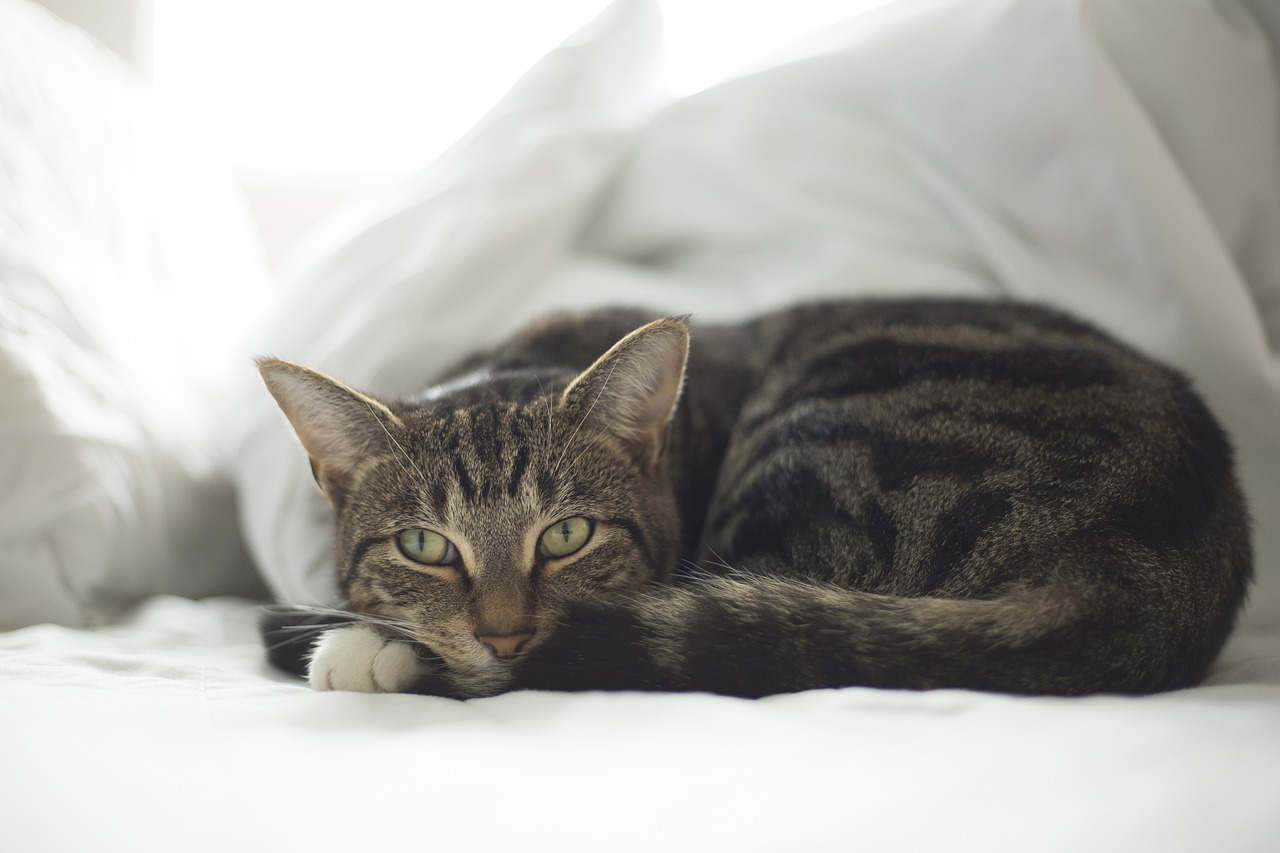
Choosing the Right Cat Food
When it comes to ensuring the health and happiness of your senior cat, choosing the right cat food is absolutely crucial. With the myriad of options available on the market today, it can feel overwhelming to sift through the choices. However, understanding what to look for can make this process a lot easier. First and foremost, you want to consider your cat's specific nutritional needs, which change as they age. Senior cats generally require fewer calories, but they still need a balanced diet rich in essential nutrients to support their overall health and well-being.
One of the key aspects to look for when selecting cat food is the ingredient list. You want to ensure that the food is made with high-quality ingredients, primarily focusing on animal protein as the main component. Cats are obligate carnivores, which means they thrive on a diet that is high in protein. Look for foods that list real meat, such as chicken or fish, as the first ingredient. Additionally, be cautious of fillers like corn, wheat, and soy, which provide little nutritional value and can lead to obesity.
Besides protein, senior cats also need specific nutrients to support their aging bodies. These include:
- Omega fatty acids for healthy skin and coat
- Antioxidants to boost the immune system
- Fiber to aid digestion and prevent hairballs
- Vitamins and minerals for overall health
Another important consideration is whether to choose wet or dry food. Each type has its own benefits and drawbacks. Wet food is often more palatable and provides additional moisture, which is essential for senior cats who may be prone to kidney issues. On the other hand, dry food can be more convenient and help with dental health. Ultimately, the choice may depend on your cat's preferences and any specific health concerns.
To help you navigate the world of cat food, here’s a simple comparison table of wet versus dry food:
| Type of Food | Benefits | Drawbacks |
|---|---|---|
| Wet Food |
|
|
| Dry Food |
|
|
Finally, if you're considering a homemade diet for your senior cat, it’s essential to consult with a veterinarian or a pet nutritionist. They can help you create a balanced meal plan that meets all of your cat's nutritional needs. Remember, just like with humans, one size does not fit all when it comes to diet. Every cat is unique, and what works for one may not work for another.
In conclusion, choosing the right cat food for your senior feline is a vital part of ensuring their health and longevity. By focusing on high-quality ingredients, understanding their specific nutritional needs, and considering the benefits of both wet and dry food, you can make informed decisions that will keep your furry friend happy and healthy.
1. How much should I feed my senior cat?
It's essential to follow the feeding guidelines on the cat food packaging, but you should also adjust based on your cat's activity level and weight. Regularly consult with your veterinarian to determine the right portion sizes.
2. Can I mix wet and dry food?
Yes, many cat owners choose to offer a combination of wet and dry food. Mixing them can provide the benefits of both types while keeping your cat's diet interesting.
3. Are there specific brands recommended for senior cats?
While there are many good brands, it's best to consult your vet for personalized recommendations based on your cat's health needs.
4. How often should I change my cat's diet?
If your cat is healthy and thriving on their current diet, there's no need to change it frequently. However, if you notice any health issues or changes in behavior, consult your veterinarian for advice.
Wet vs. Dry Food
When it comes to feeding our beloved senior cats, the wet versus dry food debate is one that many pet owners find themselves navigating. Each type of food has its own set of advantages and disadvantages, and understanding these can help you make the best choice for your feline friend. Let's dive into the details!
Wet food is often praised for its high moisture content, which can be particularly beneficial for senior cats who may be prone to dehydration or kidney issues. The added water in wet food can help keep their kidneys functioning well and support overall hydration. Additionally, many cats find wet food to be more palatable, which can encourage them to eat more, especially if they have a decreased appetite due to age or health issues.
On the flip side, dry food offers its own unique benefits. One of the most significant advantages is convenience; dry food can be left out for longer periods without spoiling, making it easier for busy pet owners. Furthermore, dry kibble can help reduce dental tartar buildup, promoting better oral health as your cat gnaws on the crunchy bits. However, it's crucial to ensure that your senior cat is drinking enough water, as dry food lacks moisture.
So, which one should you choose? It really depends on your cat's specific needs and preferences. Some cat owners find that a combination of both wet and dry food works best. This approach can provide the benefits of hydration from wet food while also offering the dental health advantages of dry food. Here’s a quick comparison:
| Type of Food | Advantages | Disadvantages |
|---|---|---|
| Wet Food |
|
|
| Dry Food |
|
|
Ultimately, the best choice for your senior cat will depend on their individual health needs, preferences, and lifestyle. If you're unsure, it's always a good idea to consult with your veterinarian, who can provide tailored recommendations based on your cat's health status and dietary requirements.
In the end, whether you choose wet, dry, or a combination of both, the most important thing is to ensure that your senior cat is receiving a balanced diet that meets their nutritional needs. After all, a happy cat is a healthy cat!
Here are some common questions pet owners have regarding wet and dry food for senior cats:
- Can I mix wet and dry food? Yes, many cat owners find that combining both can provide a balanced diet and keep their cats interested in their meals.
- How much water should my senior cat drink? Senior cats should drink at least 2-4 ounces of water per 5 pounds of body weight daily, but this can vary based on diet and health conditions.
- Is wet food better for senior cats? Wet food can be beneficial due to its moisture content, but the best choice depends on your cat's individual health needs.
Homemade Diets for Senior Cats
When it comes to feeding our beloved senior cats, many pet owners find themselves pondering the idea of homemade diets. It's like cooking for a family member; you want to ensure that they get the best nutrition possible. But is whipping up meals in your kitchen the right choice for your aging feline? The answer isn't a simple yes or no. While homemade diets can offer fresh and tailored nutrition, there are important considerations to keep in mind.
First and foremost, it's crucial to understand that senior cats have specific nutritional needs that differ from younger cats. As cats age, their metabolism slows down, and they may require fewer calories but more of certain nutrients, such as protein and fiber. When preparing homemade meals, it's vital to include a variety of ingredients that provide these essential nutrients. For example, lean meats, fish, and certain vegetables can be great additions to their diet.
However, crafting a balanced homemade diet can be tricky. Unlike commercial cat foods, which are formulated to meet all of a cat's dietary needs, homemade meals require careful planning. A diet lacking in essential vitamins and minerals can lead to health issues over time. To avoid this, you might consider consulting with a veterinarian or a pet nutritionist who can help you formulate a diet that meets your cat's specific needs.
Here are some important factors to consider when preparing homemade diets for senior cats:
- Consultation with a Vet: Always talk to your veterinarian before making significant changes to your cat's diet. They can provide insights based on your cat's health and dietary requirements.
- Variety of Ingredients: Include a mix of protein sources, carbohydrates, and healthy fats to ensure a well-rounded diet.
- Supplements: Depending on the ingredients used, you may need to add supplements to ensure your cat gets all necessary vitamins and minerals.
- Monitor Health: Keep an eye on your cat's weight, coat condition, and overall health to ensure the homemade diet is working for them.
It's also worth noting that some cats may have specific dietary restrictions or health conditions that require special attention. For instance, cats with kidney issues may need a diet lower in protein, while those with diabetes might require a different balance of nutrients. Thus, personalizing their meals can be both a rewarding and challenging endeavor.
In conclusion, homemade diets for senior cats can be a fantastic option if approached with care and knowledge. They allow you to control the ingredients and tailor meals to your cat's preferences and health needs. Just remember to do your homework, consult with professionals, and monitor your furry friend closely. After all, you want to ensure that your senior cat enjoys their golden years with the best health and happiness possible!
- Can I feed my senior cat a completely homemade diet? While it's possible, it's crucial to ensure that the diet is balanced and meets all of your cat's nutritional needs. Consulting a veterinarian is recommended.
- What ingredients should I avoid in homemade cat food? Avoid ingredients toxic to cats such as onions, garlic, chocolate, and certain artificial sweeteners.
- How can I ensure my homemade cat food is balanced? Work with a vet or a pet nutritionist to create a diet plan that includes all essential nutrients.
- Can I use leftovers from my meals to feed my cat? Not all human foods are safe for cats. Always check if the ingredients are suitable for feline consumption.
Frequently Asked Questions
- What are the essential nutrients for senior cats?
As our feline friends age, their bodies require specific nutrients to stay healthy. Key nutrients include high-quality protein, omega fatty acids, taurine, and antioxidants. These components help maintain muscle mass, support joint health, and boost the immune system. Always consult your vet to tailor a diet that fits your senior cat's unique needs.
- How can I manage my senior cat's weight?
Managing weight in senior cats is crucial for their overall health. Start by measuring their food portions accurately and consider feeding smaller, more frequent meals throughout the day. Look for low-calorie diet options that still provide essential nutrients. Regular exercise, even light playtime, can also help keep them active and maintain a healthy weight.
- What are common health issues in senior cats?
Senior cats often face various health challenges, including obesity, kidney disease, and dental problems. A well-balanced diet can play a significant role in preventing these issues. For instance, a diet low in phosphorus can support kidney function, while crunchy kibble can help reduce plaque buildup on teeth.
- Should I feed my senior cat wet or dry food?
The choice between wet and dry food largely depends on your cat's preferences and health needs. Wet food is great for hydration and can be easier for older cats to chew, while dry food can help maintain dental health. Mixing both types can provide a balanced approach, ensuring your cat gets the best of both worlds.
- Is a homemade diet suitable for senior cats?
Homemade diets can be beneficial for senior cats, allowing you to control ingredients and ensure freshness. However, it's essential to consult with a veterinarian to ensure the diet meets all nutritional requirements. Balancing proteins, fats, vitamins, and minerals is crucial to avoid deficiencies that can affect your cat's health.

